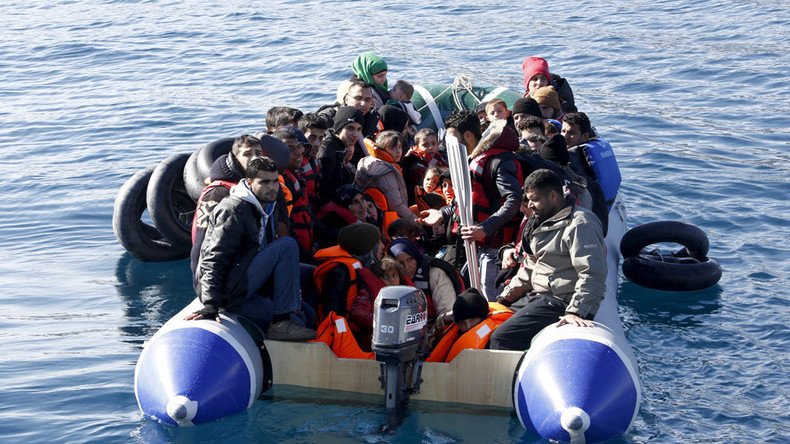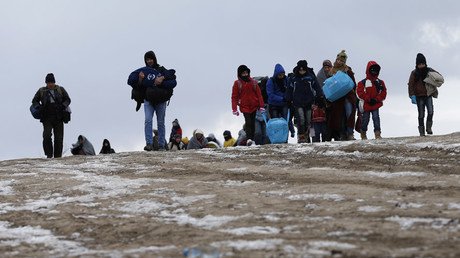‘Enormous business’: Criminal refugee smuggling bigger than guns & drugs – Czech defense minister

The business of smuggling illegal migrants to Europe far exceeds the volume of black market trade of drugs and weapons in the EU, said the Czech Defense Minister, who has “no illusions” of Turkey or Greece’s ability to curb illegal smuggling networks.
“The size of criminal business involving the transport of illegal migrants to Europe is enormous, it exceeds the turnover from the sale of drugs and weapons, making – without exaggeration – [by] billions of dollars,” said Martin Stropnicky.
The EU border agency Frontex estimates that people-smuggling networks made more than €4 billion ($4.45bn) from their criminal activities last year, with the biggest piece of the pie stemming from smuggling migrants. That profit is further used to support the illicit drugs and weapons trade.
As over 1.83 million people made it into the European Union in 2015, according to Frontex, Stropnicky expressed doubts about Turkey’s and Greece’s ability to halt or at least deal with the bursting numbers of migrants.
He said that recent statics show that illegal migrant crossings are reaching 5,000 people a day, and this is before the start of the summer season when the waters of the Mediterranean get warmer. More than 870,000 migrants arrived on the Greek islands in 2015 using the so-called Eastern Mediterranean route alone.
“I have no illusions that Turkey will stop at once the sale of vessels for the illegal transfer of migrants to Europe and smugglers will begin to be arrested, or that Greece will be able to identify arriving refugees on its territory,” Stopnicky stressed.
READ MORE: EU 'cannot handle' another year of refugees pouring into Europe – Danish PM
Multiple “efficiently” organized smuggling networks operate along the route that smuggle people into Greece via the sea crossing though the Aegean, where the distance between the Turkish coast and Greek islands is as little as 4 nautical miles (7.5 km). These networks which are organized through the use of the social media make a large portion of their profit by selling illegal documents to those fleeing the conflict zones.
“In addition to organizing the sea crossing, smugglers give the migrants information about the asylum processes in different EU member states and sell them forged documents. The highest demand is for Syrian passports, identification cards, birth certificates and residence permits,” Frontex claims.
The Czech Defense Minister also criticized Brussels’ ineffectiveness in coming up with a viable solution to limit the flow of migrants to its borders, echoing the Czech Republic’s president who has earlier criticized EU’s initiative to station some 1,500 border guards at the bloc's gate as laughable.
“I do not see 1,500 European police officers [on southern EU borders], I do not see new reception and identification centers agreed on at previous EU summits,” the defense minister said commenting on the latest EU meeting in Brussels where the bloc’s leaders debated Brexit alongside refugee crisis.
The minister further rejected the European Union’s pondering of "Plan B" which is to close the Balkan borders if necessary.
Despite efforts by European leaders to stem the flow of refugees arriving in Europe, the number of new arrivals has seen an increase in 2016. According to the United Nations Refugee Agency (UNHCR), more asylum seekers arrived in Europe by boat during the first six weeks of this year than during the first four months of 2015.














